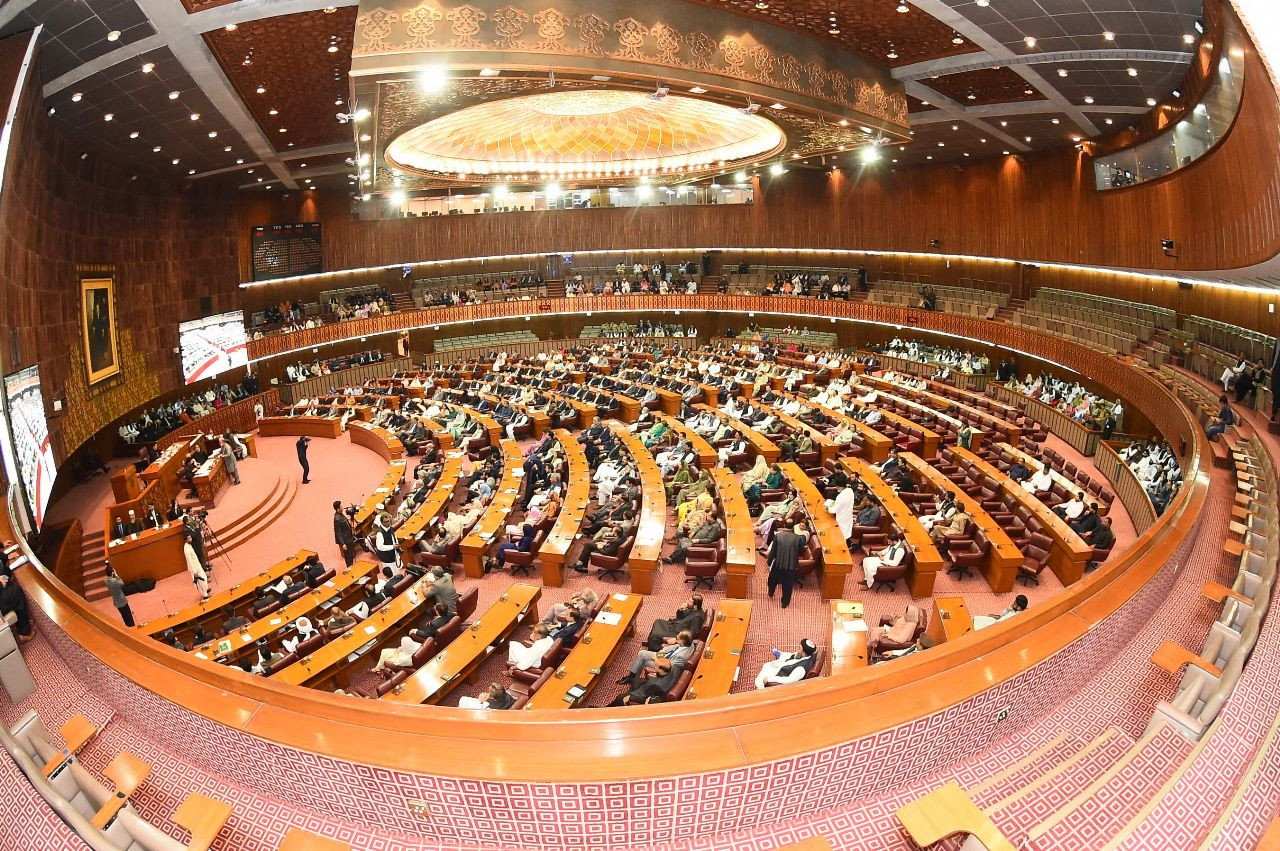
Raising serious objections to the Supreme Court judgment striking down the SC (Review of Judgments and Orders) Act, 2023, the federal government has contended that the judgment has made parliament subservient to the court.
"By discarding the Review Act, 2023 in placing the SC Rules 1980 on a ‘higher pedestal than ordinary legislation’, this court in essence erodes the principle that judicial power is not superior ‘in degree or dignity' to legislative power,” read the government's review petition filed by Attorney General for Pakistan Mansoor Awan against the apex court's August 11 verdict.
“The observation strikes at the very heart of the mainstay of the constitutional framework based on the separation of power as envisioned by the framers of the Constitution.
“By placing the SC Rules 1980 framed by the court under the Constitution above the ordinary legislation introduced by the legislature in exercise of its exclusive domain under the Constitution, the judgment under review has made parliament subservient to the court,” it further stated.
"This finding, with utmost respect, amounts to an unlawful encroachment into the domain of the legislature and merits to be remedied by way of a review being an error glaring on the face of the judgment,” the plea added.
“It goes without saying that the independence of judiciary is a salient feature of the Constitution, but so is a parliamentary form of government."
The review petition noted that obliterating the difference between an appeal and review was neither the objective, nor the intent of the legislation in question.
"Review and appeal, both being substantive remedies, have historically evolved on their own pace and on their own distinct principles. The principles and nature of an appeal have perhaps developed faster as opposed to a review as the former predates the latter,” the petition noted.
"Powers present under Article 185 of the Constitution and Article 188 rest on a plethora of case law that has outlined the parameters and fetters of [the] jurisdictions.
“Historically, following the evolution of the civil procedure from the Common Law Procedure Act, 1852 to the Civil Procedure Code, 1908 as used in the current legal system of Pakistan, it may be noted that the term review [was] first found [mentioned] in the Civil Procedure Code, 1859.
“In the Civil Procedure Code, 1859, [the] remedy of review was provided, for the first time, in section 376 where any person considering himself aggrieved upon the discovery of new evidence, or evidence which was not within his knowledge, or could not be adduced by him at the time, or any other good and sufficient reason, could apply for review of a judgment.
“The review of judgment was conducted by the same court which passed the decree (it used the word ‘court’ and not bench/judge, meaning thereby, the court in the judicial hierarchy had to be the same but the bench/judges could be different).
Read Justice Isa makes history on his first day
“Through the Civil Procedure Code, 1877, the remedy of revision was included for the first time through this Act in Section[s] 617-622. In the Civil Procedure Code, 1882, under power of review, Section 624 specifically stated that except for a review against the judgment of the high court, all reviews were to be filed before the same ‘judge’ who rendered a judgment, moreover Section 630 used the word ‘re-hearing’ to define the scope of the remedy available under review," it contended.
"The purpose of charting the history is [to] demonstrate that review unlike appeal did not always exist and has therefore evolved over time and came into being because a vacuum did exist.
“Fast forward to Pakistan’s first Constitution in 1956, review of judgments of this court found a place in Article 161 of the 1956 Constitution. It is from that time onwards that the jurisprudence underlying review developed.
“However, the purpose of the Review Act, 2023 does not hit review in its general sense but has very carefully isolated itself to all reviews emanating from petitions heard and decided under Article 184(3) jurisdiction of this court.
“This key difference appears to have escaped the court’s attention throughout the judgment under review resulting in the judgment being a resounding ode to the jurisdiction of review echoing ‘review means review and nothing more or less’,” the plea further read.
The plea observed that courts never claimed that they had the power to strike down laws. It added that the courts only did that because they had the jurisdiction to do so.
“This is a jurisdiction, which they [courts] never approach with any hubris but always with great humility and from this, stems the presumption as to constitutionality of the Act,” it added.
"A law must not be declared unconstitutional unless there is no way to reconcile the two. It is the duty of the court to afford an interpretation which would save the law rather than destroy [it]," it argued.
"The full court held that the powers conferred under Article 188 have been enhanced and not curtailed. It is important to note that the Review Act, 2023 has enhanced and not curtailed the powers of the court to review its judgments passed in its original jurisdiction under Article 184(3) of the Constitution.
“Therefore, the judgment under review is in direct conflict with the ratio of the full court judgment in the Khurshid Anwar Bhinder case," it continued.
The review plea contended that there existed a “judicious and deliberate” process that sought to balance the preservation of the legislative intent with upholding the supremacy of the Constitution.
“This process involves a sequence of steps, including ‘reading down’ and ‘severing’, that are employed before resorting to the extreme measure of striking down a statute.
“By employing methods such as ‘reading down’ and ‘severing’, the court demonstrates a prudent and balanced approach to constitutional challenges.
“Striking down a statute is a powerful tool that should only be wielded when all else fails to reconcile legislative authority with constitutional imperatives," it concluded.









1731910868-0/Copy-of-Untitled-(45)1731910868-0-270x192.webp)








COMMENTS
Comments are moderated and generally will be posted if they are on-topic and not abusive.
For more information, please see our Comments FAQ